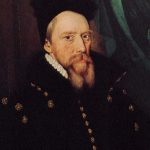This extraordinary town has been, and still is, called a number of different things. For some it was Albany, while for others it was New Amsterdam. For a hundred years or so it has borne the odd nickname of the Big Apple. There is a State, and a City. The state borders Canada in the north-eastern section of the United States, and the city is mainly built on an island called Manhattan.
Lake Champlain in the far north of N.Y. State is as cold as anywhere in Canada, and it was French settlers who sailed down the lake looking for warmer climes. This was in 1609; at the same time some Englishmen working for the Dutch sailed up the great Hudson River where the Dutch established a trading post called Albany. By 1625 a town was growing on Manhattan Island at the mouth of the Hudson (the river was named after an explorer). The island had been bought from the local Native Americans (not called that then) for a few baubles and trinkets worth roughly $24. The rapidly expanding settlement was called (by the Dutch naturally) New Amsterdam.
The British came along, as they always seemed to, and captured the island, renaming it New York for the Duke of York who later became King James II. For some bizarre reason the English, Scots, Irish, Dutch settlers and the Iroquois natives managed to live and prosper together in peace, at the same time fending off the inquisitive and acquisitive French who had also come along, as they always seemed to. Repulsed, the French went north and founded a lot of Canada AND maintained the language, though not their accent.
Several infamous pirates joined in the fun and made their base on a larger island abutting Manhattan which went by the unimaginative name of Long Island. Merchants, colonist farmers, soldiers and pirates did very well together by the Hudson for at least a century.
When the first stirrings of the War of Independence were felt, New Yorkers were divided in their loyalty. Some were all for George Washington, an English gentleman farmer and landowner, who saw a great future in North America freed from the British yoke. Others were more than happy with the British connection and were prepared to fight for it. Then the redcoated soldiery successful besieged and captured the city of New York in 1776. The Loyalists joined the redcoats and New York stayed in British hands until the end of the War.
All good things come to an end, and Washington’s forces re-took the city in 1783; the farmer from Cambridgeshire entered the town in triumph like a Roman emperor, to an embracing welcome from everybody including the Loyalists who knew on which side their bread was buttered.
Washington made his presidential inauguration speech in New York in 1789 and the city was briefly, oh so briefly the national capital of those new United States (1789/90). George the farmer had defeated George the third; he soon built his own capital further down south, AND called it after himself, though he had already named another American town after his home town – Cambridge. It was here that two universities were founded called Yale and Harvard, but that is another story.











Might wanna re-check some of your facts here! (Yale is NOT in Cambridge, MA! George Washington never lived there! Nor was he born there! NYC was never known as Albany! Etc., etc., etc.)
Please do not stop there, Carolina! I belive that New York (as we now know it) was indeed known as Albany. And please expand on the ‘etc. etc. etc. One shouid learn something from the more intelligent every day.
V.best regards, Dean.
I am waiting for you, Carolina, with bated breath. I never said that Washington lived at Yale, wherever Yale may be. I never said that Washington lived in Washington, though one supposes the town was erected in his name. I do not know what ‘wanna’ means: I know what ‘manna’ means, however, is it the same? And what are the ‘etc. etc’ etc’s? Yours faithfully, Dean Swift.